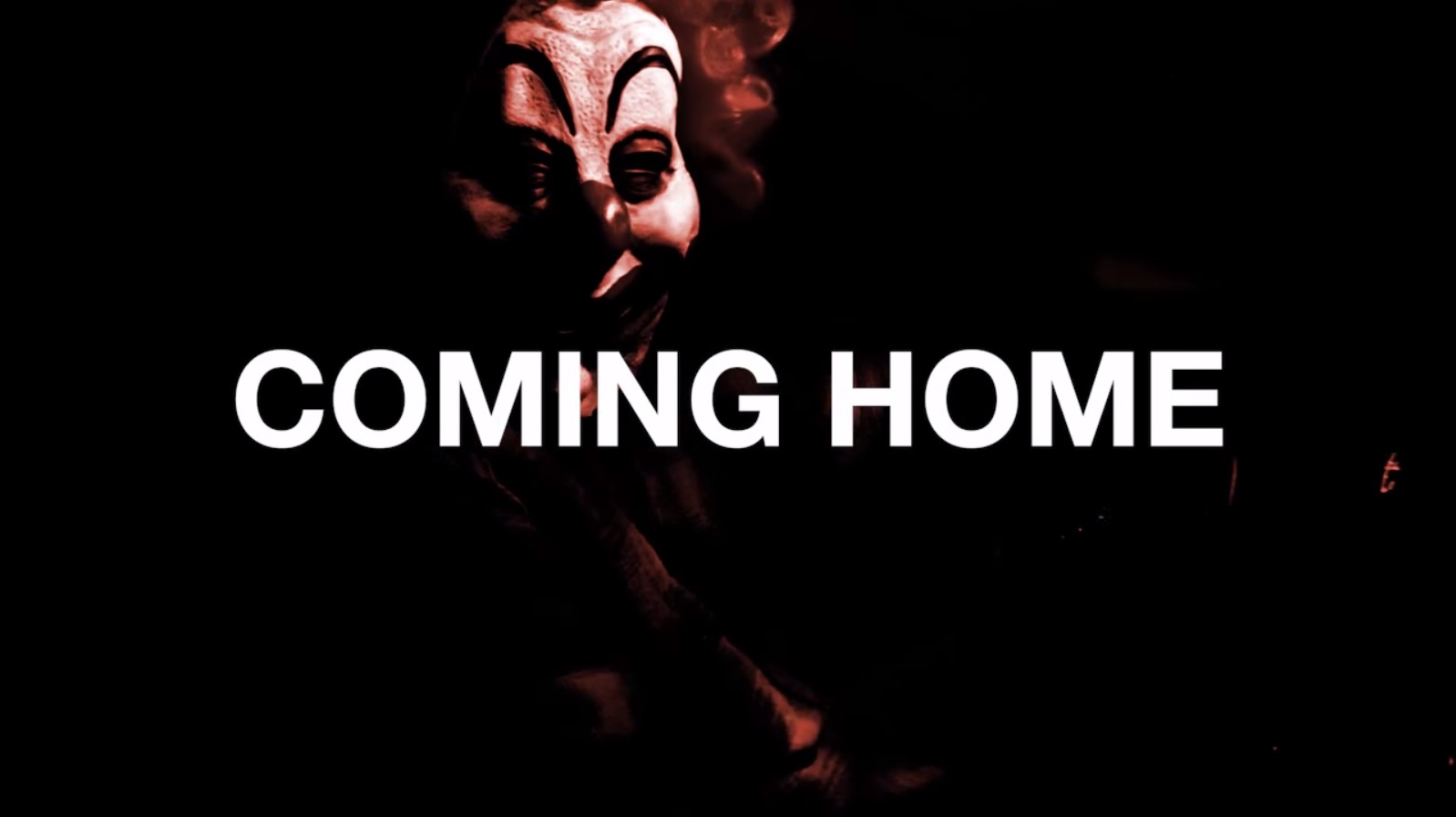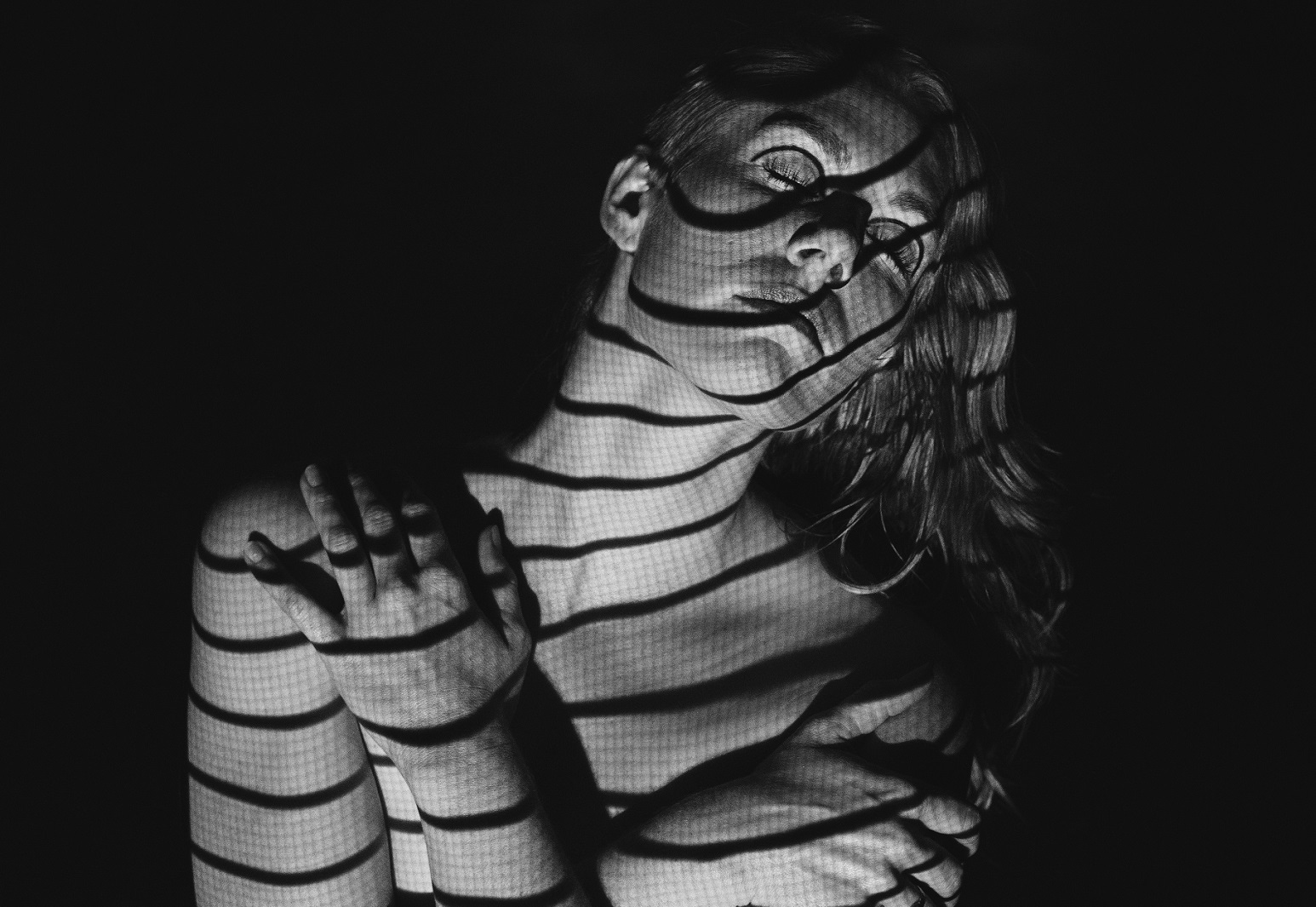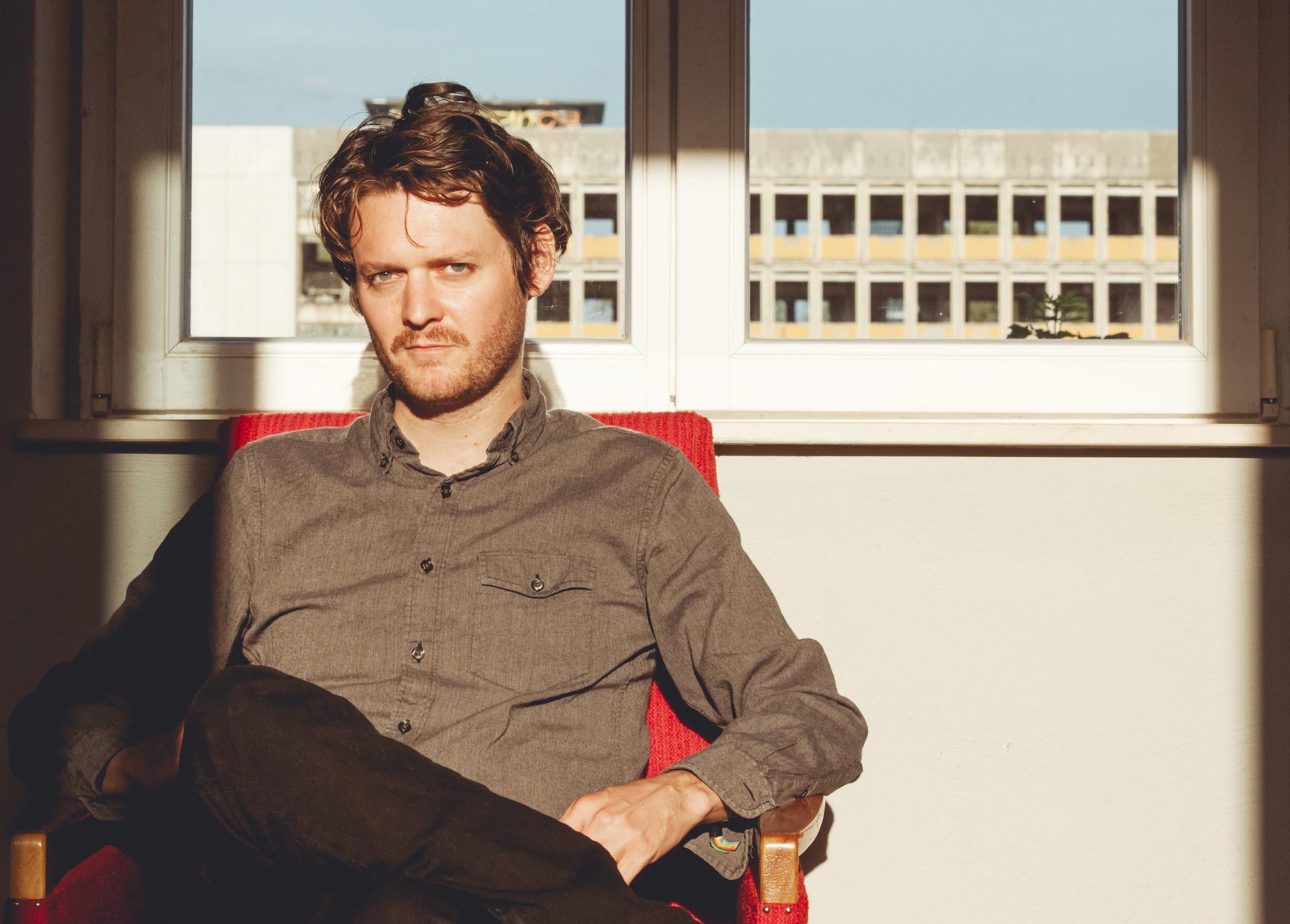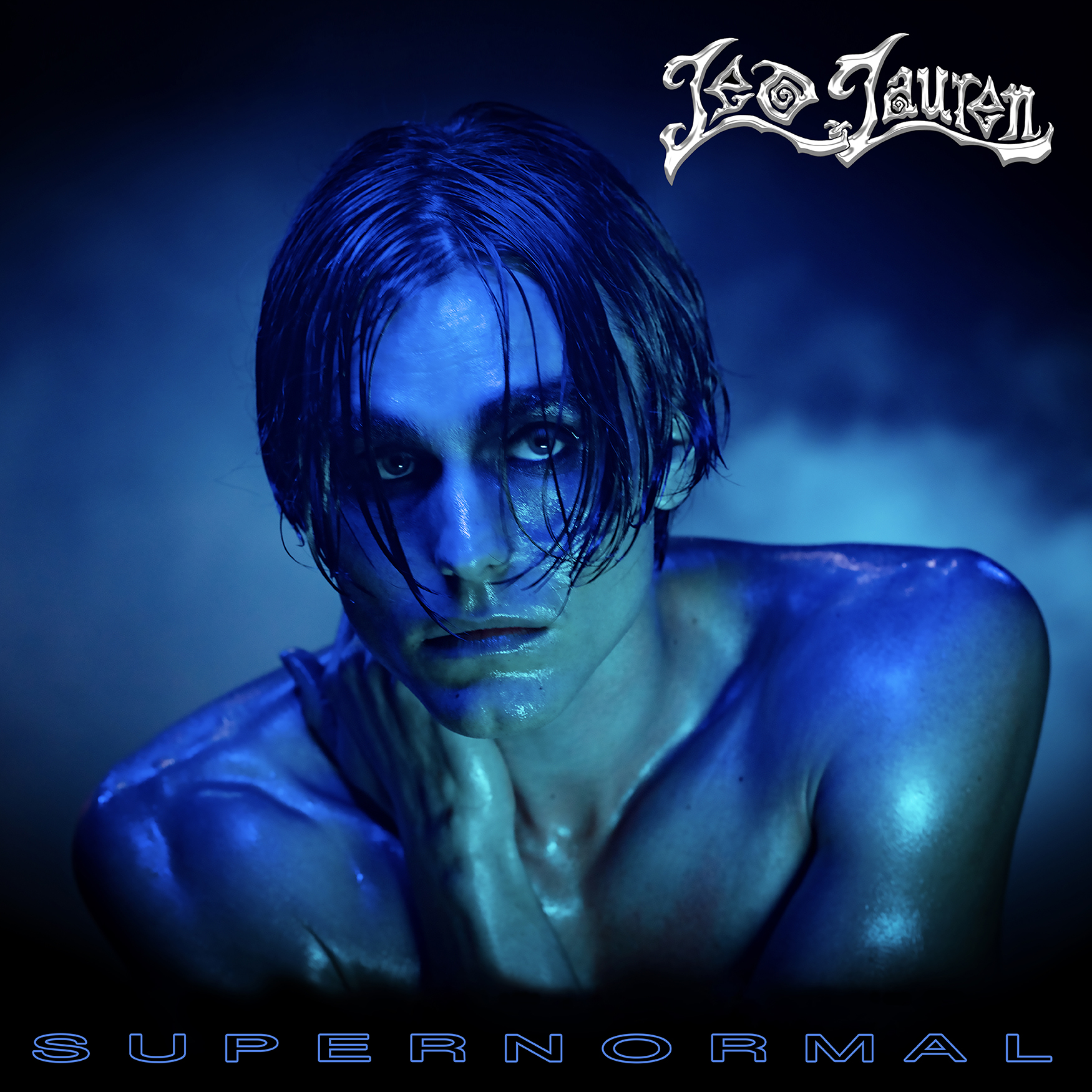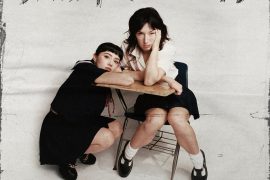With her new club-ready EP ‘BADBOI,’ BRUX’s Elizabeth Maniscalco is definitely doing her best to stay creative, jarring, and surreal all at once.
Stream: ‘BADBOI’ – BRUX
Selling NFTs over the last six to twelve months has earned me enough income to self-fund this EP. That’s something that I’m really proud of.
Belgian-Australian singer Gotye may now indeed be “somebody that we used to know” (nothing in the world screams “one-hit wonder” quite as loudly as the Wikipedia page of his discography). But Kimbra, the New Zealand indie pop artist featured on that classic 2011 track, is definitely somebody that *some* people still know.
One of them happens to be Elizabeth Maniscalco, a Brooklyn-based artist originally from nearby Sydney, Australia, who recently spun some promising creative yarn out of her friendship with Kimbra with their flashy duet, “Take.” Last month, Maniscalco (who now goes by the alias of Liz Brux, or simply “BRUX”), continued her musical progression by self-releasing her new EP, BADBOI (out August 25, 2022).
Furthermore, whereas she used to obscure her face with a mask throughout her performances — taking a proverbial leaf out of fellow Aussie Sia’s book, perhaps? — BRUX is now setting that androgynous tactic aside and going back to presenting herself in full while onstage and on social media. It’s fair to say that she’s had a change of heart that may go on to influence her music.
All told, BRUX could indeed be somebody that we are about to know a whole lot better. Atwood took a step in that direction with a recent interview.
— —
:: stream/purchase BRUX here ::
A CONVERSATION WITH BRUX
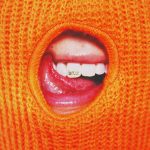
(This interview has been edited for length and clarity)
Atwood Magazine: Walk us through your musical journey, up until the release of your new EP. What have been some of the major stepping stones along the way?
BRUX: I started the BRUX project back in 2016. Before that, I performed as “Elizabeth Rose,” and it was more pop/commercial stuff. I got pretty bored of that after a while, having done it since 2010. I kind of just wanted to go in a completely different direction and just be experimental and essentially have no limits. I still have that pop influence, but I don’t like to follow pop arrangements or formulae.
After I started making music as BRUX in 2018, I was lucky enough to sign to Dim Mak Records, which is Steve Aoki’s label. That was incredible and just a really cool way to start the project off. That same year, I was part of the Red Bull Music Academy over in Berlin. Spending two weeks with about about thirty other creative minds from around the world was a big turning point for me— I felt like I was a sponge and just soaking up all of these experimental influences and ideas.
I then joined DeadBeats, with is a new Canadian label run by Zeds Dead. I was able to do a four-track EP with them, collaborating with an artist that I greatly admire named Kimbra, who’s lived over here in New York for six years. I first met her in 2019 in a writing camp; ever since then, we’ve been writing songs together. It’s been so good.
With this EP, I wanted to change lanes again and make something quite clubby, heavy and urgent. A lot of the music on this EP was written in 2020, when I was meant to reach New York from Sydney. Of course, that got cancelled due to the pandemic. I was in this phase that year of feeling really trapped and uninspired, and just feeling so frustrated that I couldn’t even go out to experience anything — there were no clubs or shows for me to perform at.
I feel like this EP just kind of came from all of the pent-up frustration from that year. And I kept it pretty raw, to be honest. I didn’t want it to sound too clean or too slick. The whole point was to just really focus on the grit and authenticity, which usually comes out when I work really quickly. I didn’t want to spend too much time on the songs, either. I just made a point of writing these songs quickly and not second-guessing myself, which is so easy to do. But yeah— out of that practice came this body of work that so far has been really connecting with people, which has been really awesome.
You put out several singles in advance of the EP, including ''FOLLY OF THE BEAST.'' How did those singles come together and how are they representative of the album that followed?
BRUX: A lot of those tracks actually came from a jam that I was doing on this new bit of creative gear that I bought in June 2020. It was a new “DFAM,” which stands for “Drummer From Another Mother.” It’s like this semi-modular percussion synth that has a sequencer on it. You can carve and create really crazy, raw sounds and rhythms with it. Every time I use this bit of gear for 20 minutes here and there, a song just comes out. It’s like my little magic bit of gear. All three of the singles off of BADBOI were made with the DFAM.
What are some ways in which you hope to connect with your fans and really make a big statement about where you are artistically with the BADBOI EP?
BRUX: I think what I want most is for people to want to see it live in a club, since it was made for that scene. I had the intention of playing these songs out in a sweaty, dark club, which is the kind of place I love (I DJ, as well). That’s what I hope— that people get the sound of the project, but most of all, that they want to see me play live and experience it in that setting.
Are you planning to perform the EP live locally or go on tour with it?
BRUX: Back home in Australia, yes. I’m headed back home next month for five weeks to do a festival tour. At the end of this year, I’m also putting together a club night; I’ve got local artists here I’m talking to. I’m going to try to focus mainly on female identity and find some producers and DJ’s for it. I’m really trying to curate it to artists who are pushing the boundaries and ahead of the curve. That’s something I hope achieve by the end of the year.
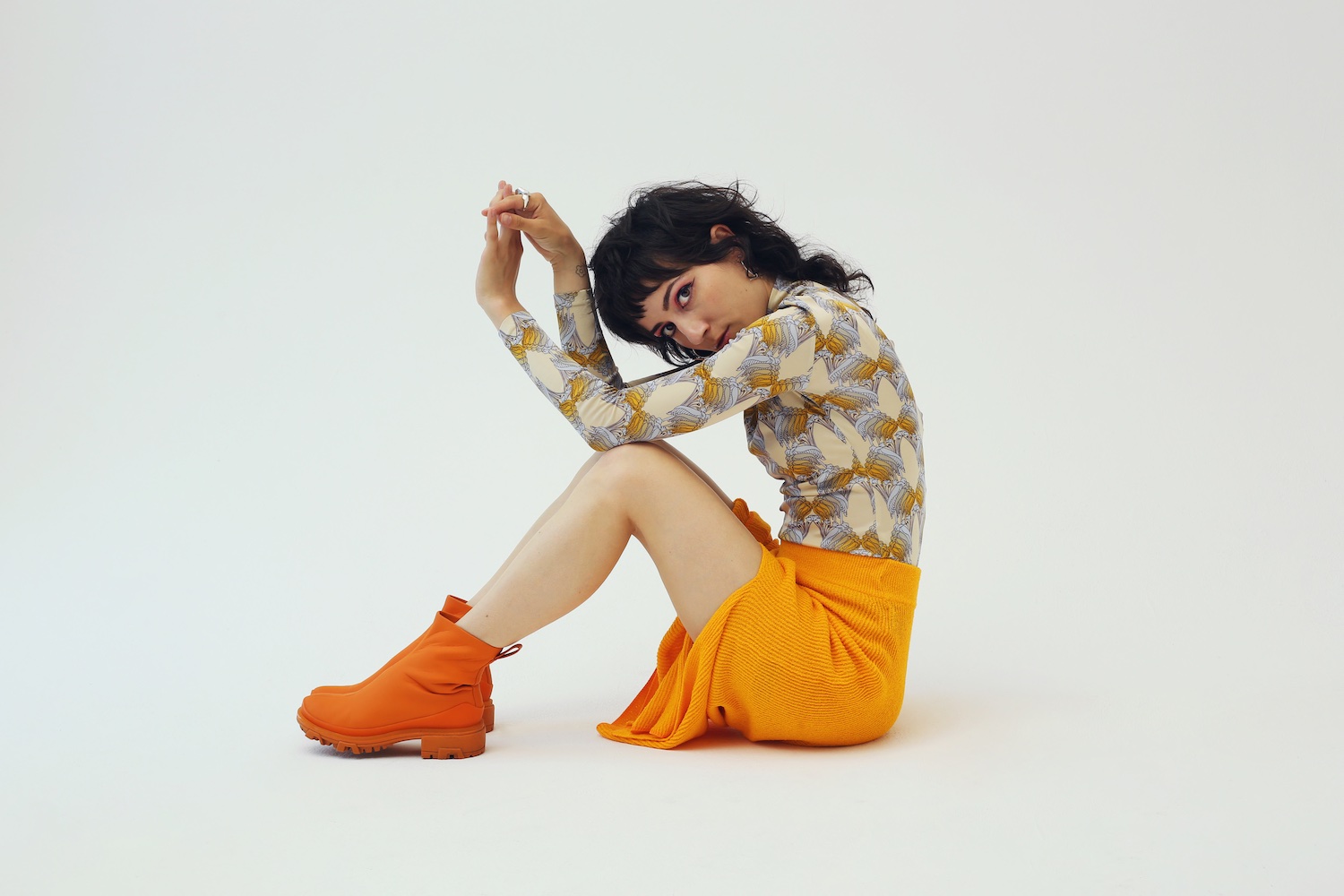
You're originally from Sydney and currently reside in Brooklyn. How have these two places affected your creative craft?
BRUX: Brooklyn and Sydney are very different. Sydney is so laid-back— I grew up in the inner-city suburbs. It’s very relaxed; people don’t want to work too hard past 6pm. That peace and quiet have allowed me to have that stillness and figure out my next move with this creative project. If I had tried to relaunch myself as BRUX after moving here to Brooklyn… I don’t know, I feel like I might have been quite frazzled and given up completely because it was just too stressful. When I was home in Sydney, though, I was very comfortable, so it felt like the right place to switch gears.
I moved back here last year in January 2021. While in Brooklyn, I feel like I’ve kind of found my confidence in terms of just owning my craft and really talking myself up, which is something that Australians do not do. No one likes to talk about how the work they’re doing is good, since it sounds like it’s arrogant. But it doesn’t come from an arrogant place; it’s just telling it how it is. You know, like: “I can produce. I can DJ.” It’s like that saying: “It’s OK to call a spade a spade.” I’ve learned to be more direct over here and it’s been really great. I love it.
''Unmasking'' is a major theme of this latest project; you're finally showing your face when you perform in public. How did you go about this unmasking process and how did you decide the time was right for it?
BRUX: I wanted to start the project genderless and masked, so that the music would be judged, rather than my face or body. Unfortunately, that is such a common theme for women in this industry; it’s a lot of hurdles. And that kind of gave me the idea of keeping this project sort of androgynous. That worked, I guess, for the first two or three years. And then I felt like I’d kind of proven my point.
In 2020, while I was stuck in Australia, I had that space again to reevaluate and assess whether I wanted to continue the project. I knew I needed more of a connection with my fans and I felt that keeping it androgynous got me to a point where I could only connect so far. The whole “mystery thing” was great in the beginning, but then I realized that, “No, I kind of need to develop further and progress.”
It’s important for an artist to grow and change. That’s progression. And I realized that, “OK, I think I’m just going to show my face. I’m going to go really colorful and really vivid. All the artwork is going to be intense, hyper-color, screaming into the ether.” That was the whole idea behind it.
On International Women’s Day in 2021, I wrote a post about it on Instagram. I discussed how I’d come to the realization that I shouldn’t have to hide my identity in order to have a place at the table. That’s really where it changed for me. It was really scary at first, because I was so used to being behind this mask that was nice and comfortable. I feel like growth can be painful, but it’s necessary, and I was ready to move that way.
I feel like growth can be painful, but it’s necessary, and I was ready to move that way.
You often present yourself as a ''surrealist club pop artist.'' How would you describe that identity and how do you channel it into the new BADBOI EP?
BRUX: I guess that “surrealist” comes from my love of film and fashion. That’s where I like to pull my inspiration from.
Film-wise, I love David Lynch. He’s one of my all-time favorite directors and writers. Twin Peaks, Lost Highway, Mulholland Drive, Blue Velvet… all of those have quite a lot of darkness and theatrical elements. And I really love that. Maybe not consciously, but I think it comes into the project with the artwork. It’s always realistic, but there’s also something that looks a bit weird.
With the artwork for BADBOI, I worked with a designer, Dylan Reyes, who also did the photography. What we wanted to do was to just slightly warp the images so that they aren’t what they appear to be. You have to really look at the artwork to see that, “Oh, the eye is actually drooping downwards into the mask,” or “Oh, the lip is misshapen.” I like the idea of an illusion— that what you see is not really what’s in front of you.
That also really interests me with costumes. I have a background in fashion design, so I do a lot of styling and dress-making. I am always trying to look for pieces that are just a little bit “out of left field” and a bit jarring. And then musically, I try to channel that surrealist perspective or influence in how I treat my vocals.
With the vocals in “FOLLY OF THE BEAST,” I detune them and pitch them down to make them sound androgynous. On the song “BADBOI” — they’re not my vocals, they’re from a sample that’s chopped up. On “VINEGAR HILL,” though, they’re my vocals as is. For that one, I wanted to make it sound like a group of kids or teenagers screaming on the street. And so, I recorded my voice 15 times. I set up a microphone in my studio, then moved around the room and screamed. I try to create these theatrical moments in any way possible, and I think that’s where the surrealism comes from.
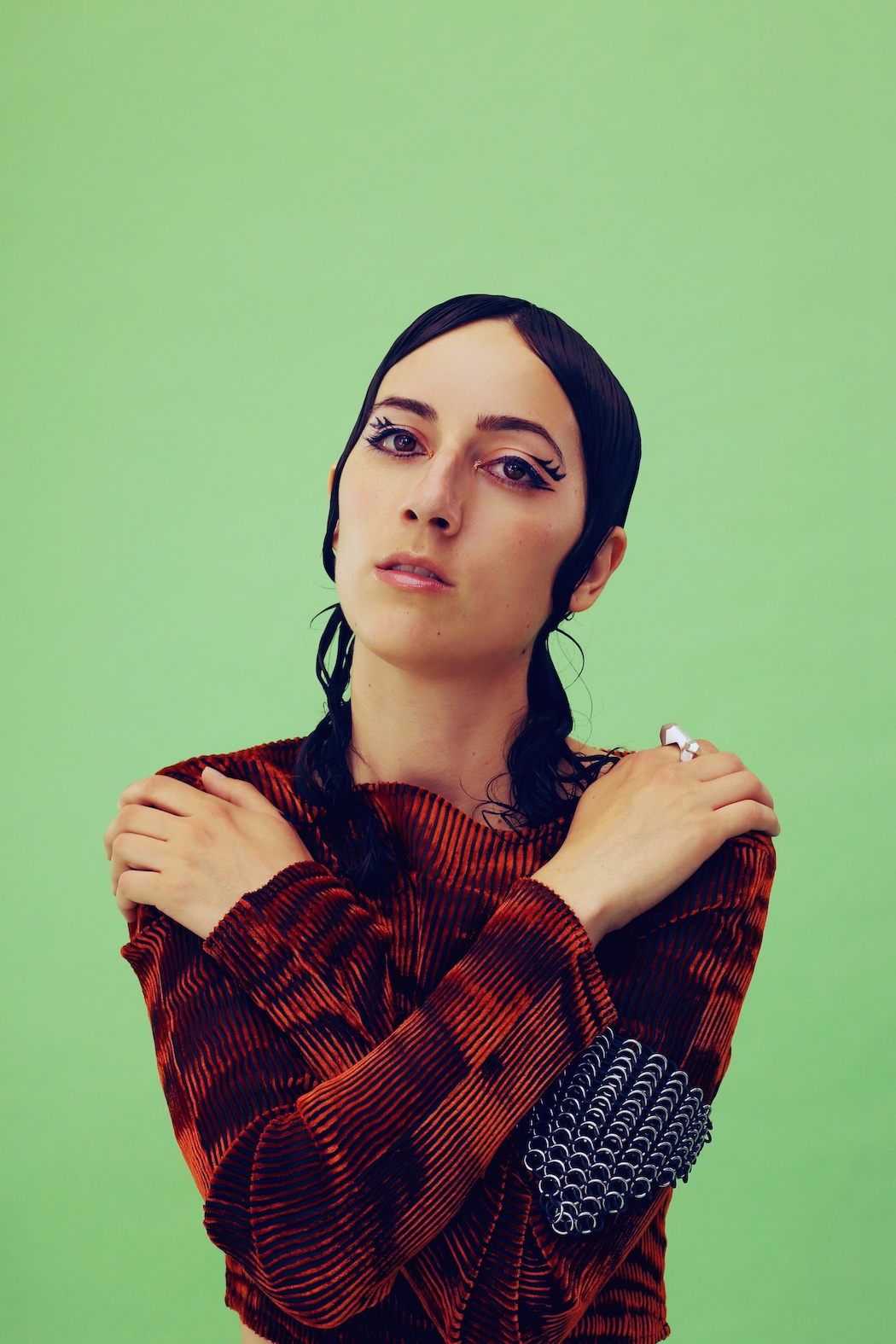
Anything more you'd like to tell your potential readers?
BRUX: Yes, actually, there is an interesting angle. This is the first time I’ve ever released my own EP independently and it’s also the first time I’ve ever self-funded a release. Thanks to the NFT Collections that I’ve been releasing, I can kind of lean into my more experimental, surreal, weird stuff. Selling NFTs over the last six to twelve months has earned me enough income to self-fund this EP. That’s something that I’m really proud of.
— —
:: stream/purchase BRUX here ::
Stream: ‘BADBOI’ – BRUX
— — — —

Connect to BRUX on
Facebook, Twitter, Instagram
Discover new music on Atwood Magazine
? © Dylan Reyes
:: Stream BRUX ::


